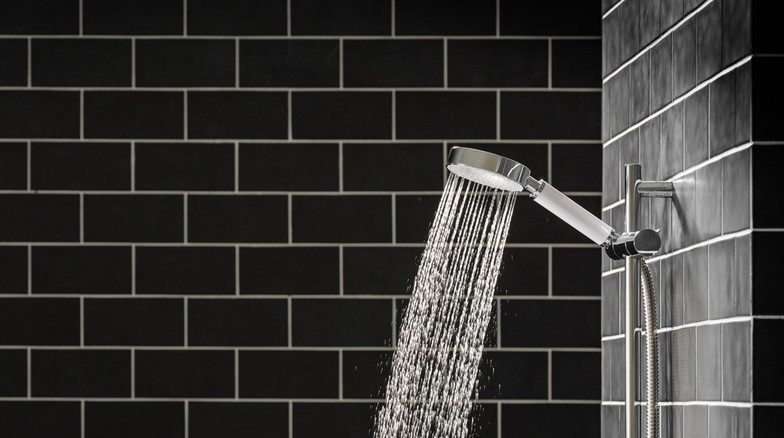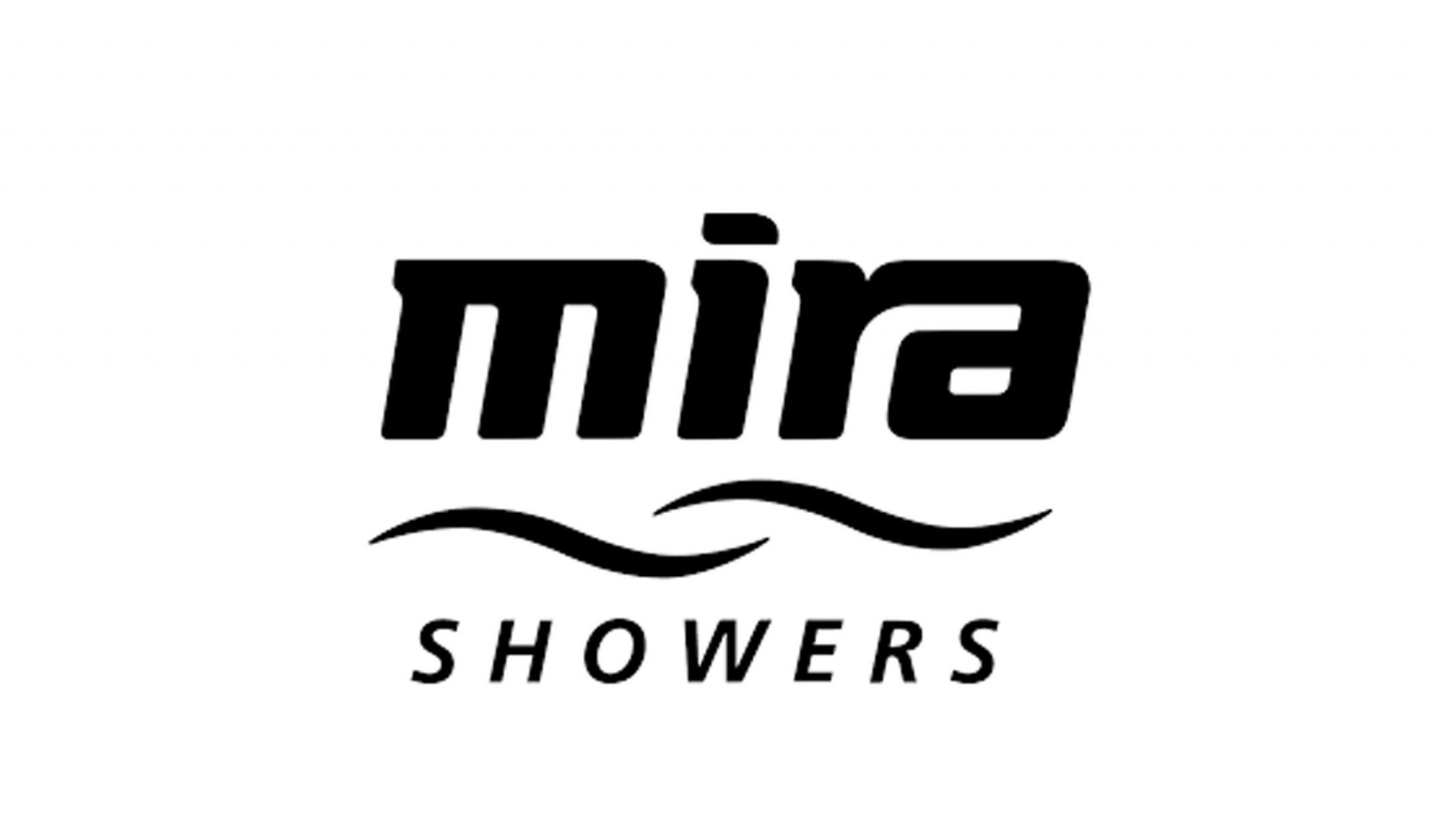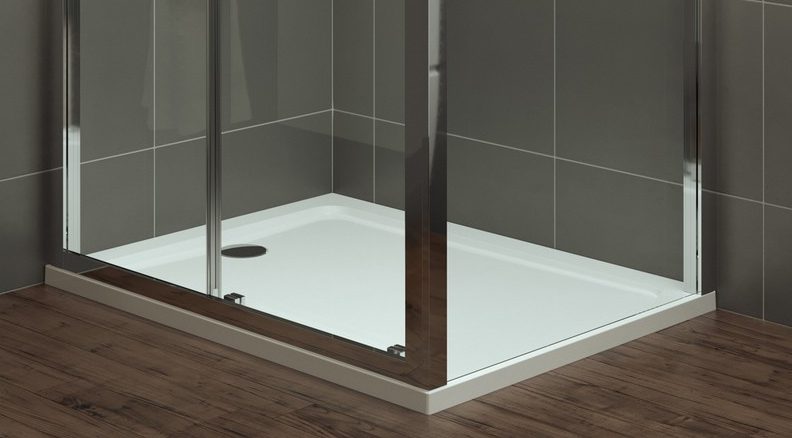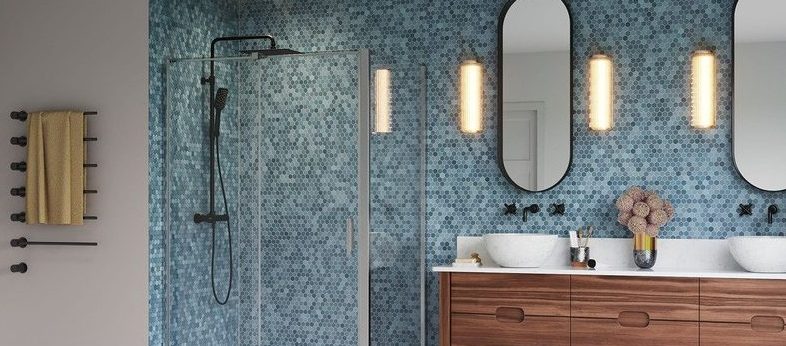- Help & Advice
- Buying Guides
- Shower Buying Guide
One of the best ways of kickstarting your day is by taking an invigorating shower! If you're looking to replace your current shower with something new, it's helpful to understand a bit more about the different types to choose from. The best shower for you will first depend on the type of boiler you have, as some are better suited to certain showers.
It's also important to consider the source of the water as this can impact the pressure, and you might want something to increase shower pressure – which can be done by installing a shower pump. You may also want to consider the sort of shower that’s already in place, as replacing like-for-like can be easier to install and more cost-effective.
Finally, you’ll want to consider the best type of shower valve for water flow and temperature control. Upgrading the style of the shower can provide a more luxurious experience and even elevate the look of your bathroom.
Types of Shower
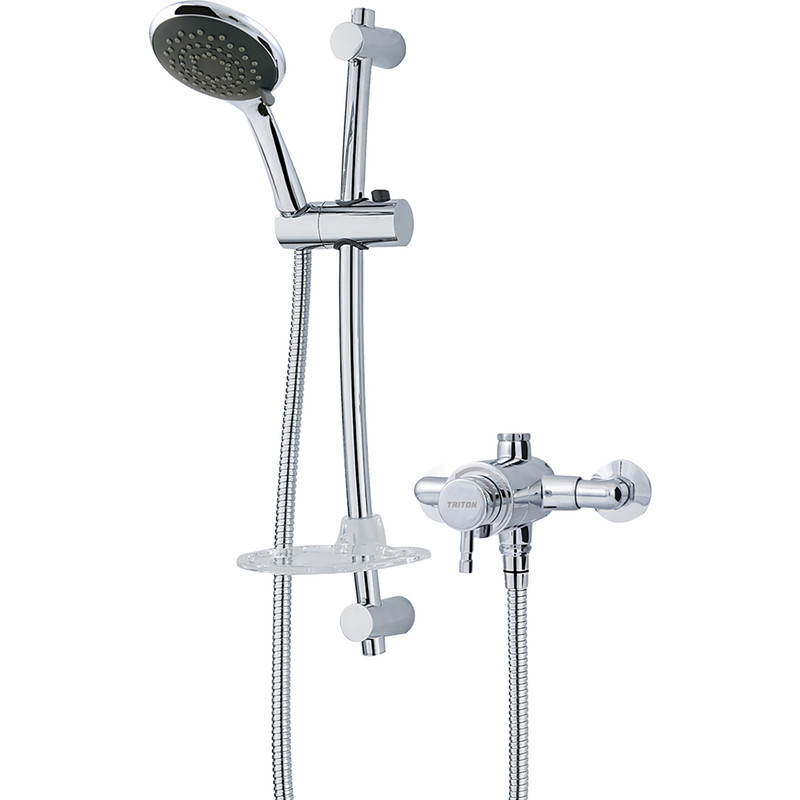
Mixer Showers
Mixer showers take water from your hot and cold supply to create the perfect temperature. Most models are thermostatic, which react to changes in temperature and adjust the water pressure to keep a consistent temperature. You’ll find mixer showers with different control types which can be exposed or concealed behind the wall.
Mixer showers work with all boilers, meaning they're future proofed against potential boiler changes. They’re also easy to use and often simple to install. Thermostatic mixer showers offer a consistent temperature that allows you to fully unwind and relax and you don't have to worry about the risk of scalding.
Mixer showers are less suitable if you have low water pressure. For manual mixer showers, you may also find the temperature changes when a toilet is flushed or a tap is run. Thermostatic models could reduce the pressure until it can regulate the temperature. Both could be frustrating, so you’ll want to ensure your boiler is powerful enough to avoid this happening.
Advantages
-
Works with all boilers
-
Easy to use and install
-
Thermostatic models keep a consistent temperature
Things to Consider
-
Not suitable if you have low pressure
-
Pressure or temperature could be affected by running taps

Electric Showers
Electric showers pull in water and heat it within the unit by drawing it over a heating element, warming it up to the set temperature before sending it to the shower head. They’ll provide virtually instant hot water and aren’t affected by the water being used anywhere else around the home.
One of the main advantages of electric showers is that they’ll work even if your boiler is faulty – no more cold showers when you’re waiting for an engineer to come over. They’re a versatile shower type, and can work with any boiler – meaning you won’t need to change your shower if you convert your boiler. They’re also inexpensive and fairly easy to install and use – simply press a button and the shower starts!
Electric showers will not work if you have a power cut, which you should consider if your home is prone to outages. You’ll also find that electricity is slightly more expensive than gas per kWh, making electric showers slightly pricier to run than mixer showers, especially if you opt for a higher powered model.
Advantages
-
Easy to use and inexpensive to buy
-
Not affected by the boiler in any way
-
Almost instantaneous hot water
Things to Consider
-
Won't work if you have a power cut
-
Could increase your electric bill
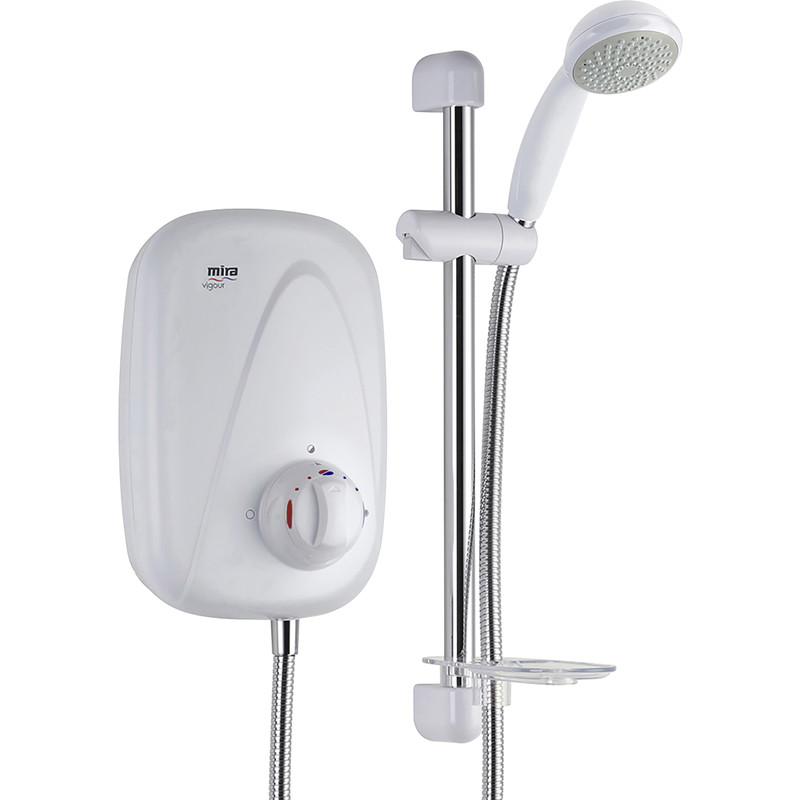
Power Showers
Power showers work like mixer showers, combining cold and hot water to create the perfect temperature. An electric pump then increases the pressure before it gets to the shower. Power showers require a hot water cylinder, which you’ll have if you have a system or heat-only boiler.
They’ll increase water pressure significantly – providing a more luxurious experience. Power showers are often a first choice when renovating a bathroom. They're fairly easy to install too, and offer the flexibility to control both the temperature and the pressure of the water.
Power showers are often more expensive to buy and run than other showers. They use both the boiler and an electric-powered pump to provide a luxurious showering experience, meaning a power shower may use more energy than other types. Power showers also won’t work with combi boilers, which are becoming more and more common in homes.
Advantages
-
Boosts water pressure
-
Easy to install
-
Control temperature and pressure
Things to Consider
-
Slightly pricier than other shower types to run
-
Not suitable for combi boilers
-
Use more energy than other types
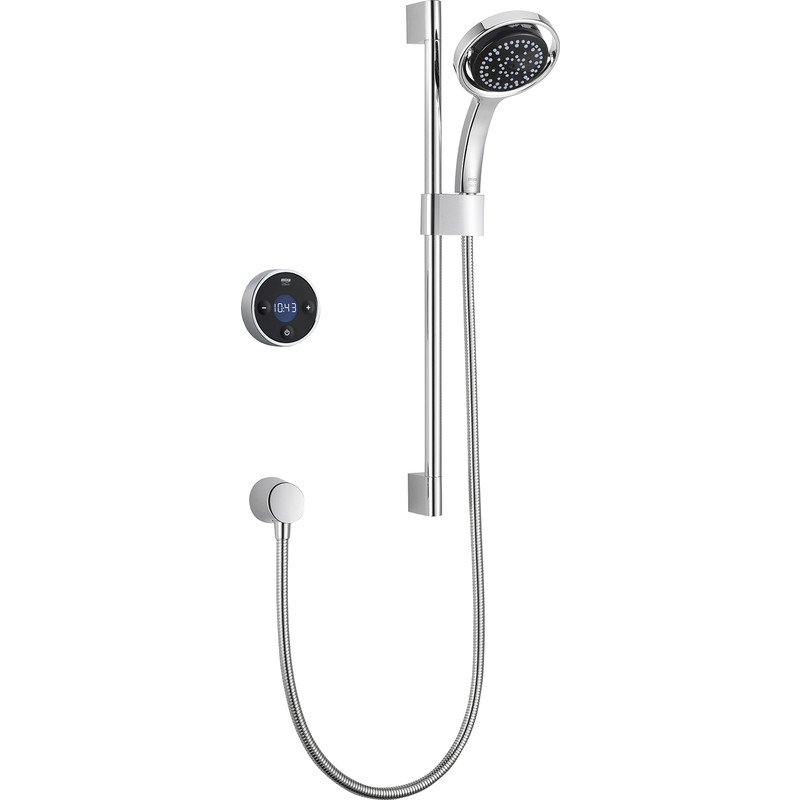
Digital Showers
Digital showers are a type of smart shower, with a thermostat within the shower valve and an independent control panel located elsewhere in the bathroom. Like a mixer shower, they combine hot and cold water to create the perfect temperature which is pre-set on the control panel.
This type of shower will work with any boiler type, so the money you spend on it won’t go to waste if you’re thinking of converting your boiler in the future. The control panel for a digital shower is also placed away from the outlet, meaning you can turn it on without getting your arm wet.
Digital showers are a high tech, luxurious option with an efficient and attractive design, and this is reflected in the higher cost to purchase. If you have low water pressure from your taps, you’ll want to consider a pumped model to increase the pressure from your shower head.
Advantages
-
Suitable for any type of boiler
-
Sleek, attractive design
-
Controlled from a panel away from the shower unit
Things to Consider
-
Higher cost compared to other types
-
Look for pumped options if you have low water pressure coming out of your taps
Key Shower Considerations
Pressure and Flow Rate
Shower pressure is measured in Bar. The greater the pressure, the more invigorating the shower – and the more water that’ll be used. Most showers have a maximum pressure between 5 and 10 Bar, and a minimum pressure between 0.1 and 1.5 Bar.
Flow rate is linked to water pressure. Generally, higher flow rate means higher water pressure. Most standard showers will offer a flow rate of around 12 litres per minute, at a minimum pressure between 0.5 and 1 Bar.
Material and Colour
Most showers are made of stainless steel – giving them a modern look as well as resistance to corrosion. Chrome-plated showers look similar and have extra durability and resistance to corrosion and hard water stains.
Brass is durable and corrosion-resistant, and brass coatings can give you a timeless look to suit traditional bathrooms. For an ultra-modern look, opt for brass showers with a chrome or black coating.
Spray Patterns
Most shower heads have a different spray patterns, including a rainfall spray and a jet spray. Other spray patterns include a massage spray which uses pulsating water, combination sprays and fine mist sprays. Different spray patterns offer different experiences, whether you want an invigorating morning wash, or a peaceful evening wind-down.
If you have low pressure, you can change the spray pattern which can improve the water pressure. A jet spray can help you tackle tough dirt with a high-pressure blast of water, while a pulsating spray can give you the massage you desperately need at the end of a long day.
Shower Head Shape
Handheld shower heads generally come in circular, square or wand shapes. These shower heads can typically be taken from the holder to manoeuvre the head to your needs.
You’ll also find fixed overhead showers (sometimes called rain heads or drench heads) which are generally square or round. These heads are fixed into the wall directly behind the shower or in the ceiling above, and offer a rainfall shower pattern.
Showers with two heads – one handset and one overhead – give the best experience of both types.
Shower Hose Length
If you’re opting for a shower head that you can remove from the wall mount, you’ll want to consider the length of the shower hose. A longer hose means more flexibility to move the shower head around for effective cleaning, but may lose some heat.
A shorter hose may look neater than a long one, but you’ll have less flexibility. The best option is to find a good balance for you – consider comparing your current shower hose length with the replacement, or use some string to get a feel for how it looks and feels.
Number of Shower Heads
Most showers have one shower head – no matter the size and style of the bathroom. However, for a luxurious and high-end appearance, consider two or even three shower heads to give you a variety of options.
Most showers with multiple heads combine a rainfall style shower bolted into the wall with a handheld shower head. You can choose between a direct, overhead spray and a head that you can move around for a deep clean. These shower heads use diverter valves to change where the water is coming from.
Controls and Shower Position
Shower controls and position means how you turn it on, and where the controls are placed in the room. Concentric valves are made of two rotary controls on top of eachother – one dial controls temperature, one controls water flow. Bar valves are similar, but the dials are at either end of a bar. Sequential valves feature just one dial – the more you turn it, the hotter the temperature.
Showers can be either concealed or exposed. Exposed is the most common – you’ll see the shower, plumbing and controls on the wall. Concealed showers have the plumbing hidden in the wall. Exposed showers are easier to install, but concealed showers are modern and easy to clean.
WRAS Approval
The Water Regulation Approval Scheme (WRAS) is a certification body for plumbing products, including showers. WRAS approval means you can choose a compliant shower that makes water safe to use.
Choosing a shower that’s not WRAS approved can mean expensive leaks or worse – pose a risk to health. If your shower causes a burst pipe, it could be costly to fix, making WRAS approval crucial to protect you and your bank account. Some products will feature the WRAS logo which makes it easy to identify if the product you’ve purchased is suitable for use.

